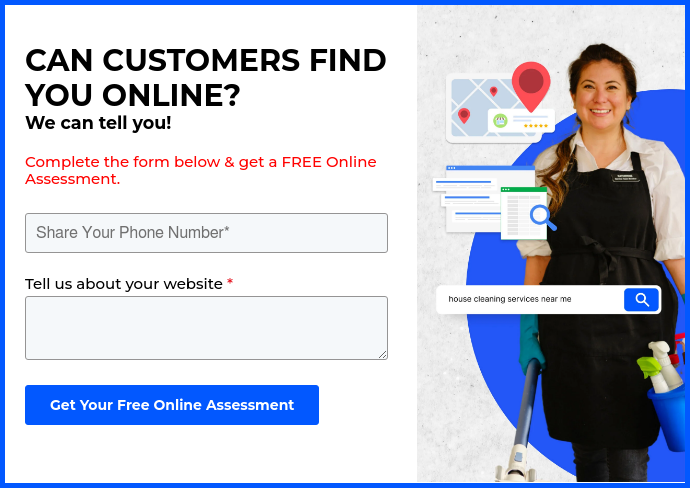7 Steps to Register a Business in California
Are you trying to register your company? Here's an easy-to-follow guide on how to register your business in the state of California in a few simple steps.

Are you a new business owner looking to register your company in California? First of all, congratulations! Starting a business is one of the biggest decisions you will ever make. But now, it’s time for the technical piece—getting registered. Registering your business requires adhering to many specific rules and procedures. But don’t worry, it’s not as hard as it looks.
Before you begin, there are few preliminary measures that need to be taken care of. To start, you need to figure out a business plan. This will serve as your business blueprint to help run your business and establish a plan for its growth. Your plan should include a sales, marketing, pricing, and general business strategy. Include any market research, insurance plans, as well startup and overhead costs.
Here's a guide on how to create a business plan from the U.S. Small Business Administration.
When you begin to register your business, keep in mind that every state has a different process, as well as its unique payroll tax laws and state agencies, so this is only applicable to businesses registering in the state of California. Don't forget to drop your email below for more tips, resources, and insider discussions on all things small business delivered straight to your inbox.

1. Decide on Your Business Structure
After your business plan is finalized, you need to figure out the structure of your business. It’s always a good idea to speak with a private attorney or tax advisor for some guidance on which kind of business entity will meet your business needs. They will also inform you on what your legal obligations will be before committing to a structure.
Here are the major types of business entities available in California:
- Corporation
- Limited Liability Company
- Limited Partnership
- General Partnership
- Limited Liability Partnership
- Sole Proprietorship
You can learn more about the different types of business entities here.
2. Pick a Legal Name
When your business plan and structure are complete, you can move on to choosing a business name and reserving it. Check the California Secretary of State to learn more about name availability and reservation. Reserving your name online doesn’t mean you’ve registered it. You're required to complete several steps before registering your legal business name with the Secretary of State.
You can find a full list of name regulations and additional statutory requirements and restrictions for business entities in California here.
3. Locate and File Your Tax Information
Make sure you have the necessary paperwork for the following state and federal agencies and programs:
- California Franchise Tax Board (FTB)
- State Board of Equalization (BOE)
- State of California Employment Development Department (EDD)
- Internal Revenue Service (IRS)
Once you locate the necessary tax paperwork, you are required to file your tax and employer identification documents. At this stage, you should have your legal business name and your Federal Employer Identification Number (FEIN) from the IRS. Your FEIN is a nine-digit number that enables the IRS to identify your business. You can apply for it here.
If you are having trouble with your tax information, you can visit the California Tax Service Center for assistance.
Want to turbocharge your California small business?
Book more jobs & eliminate hours of office work using GoSite. Click Here to Learn More!
4. Register your DBA (if applicable)
A DBA, which is short for doing business as, is a trade name or fictitious business name that is used by companies that don't want to operate under their legal registered name. This is a common choice among business owners.
When deciding on a DBA, it’s important that you don’t choose a name that closely resembles your competitors—be original and pick a unique name. Also, you have to pay attention to the state's naming guidelines and be sure to double-check that everything is spelled correctly prior to publishing your name.
Once you’ve settled on a suitable name, you can begin registering your DBA. You will need to file a Fictitious Name Statement form, which you can obtain and submit through your local county clerk’s office. You should check with your county for specific requirements. Some fees are associated with the filing process, which vary depending on the county.
5. Register Your Business
Generally, if you wish to conduct business in the state of California, you are required to register and form your legal entity with the California Secretary of State’s office. The only exception is you formed a sole proprietorship.
Each type of business entity requires a different registration form. You can search for and download the appropriate form on the SoS website. Because you have already selected a name, checked its availability, and reserved it, registering your business name will be a piece of cake.
Once you’ve filled out and submitted all the forms, and the information is approved by the state, the SoS will assign you an individual SoS account number. Make sure to save this number in a safe spot because it’s necessary to complete the final step in the registration process.
6. Check if You Need a License or Permit
Many businesses require a license or permit to conduct business. If you are unsure of what you are legally obliged to obtain, you can use the following resources to determine what your business requires. The Gold Standard For Permit Assistance CalGOLD and the Department of Consumer Affairs are great resources that provide businesses wiith information regarding permit, license and registration requirements.
Some common licenses and permits include:
- Business License
- California Seller's Permit
- Alarm Permit
- Building Permit
- Tax Permit
- Health Permit
- Occupational Permit
- Signage Permit
- Zoning Permit
If your business requires a license or permit, you must procure business licenses and other permits from appropriate cities or counties and wait to get approved by the state. Once you have been given the green light, it’s time to move on to the final step. You’re almost done!
7. Register with the EDD
After completing the first six steps, you should be fully equipped with all the necessary information to register as an employer with the Employment Development Department. This includes your business’s:
- FEIN
- Business type
- Legal name
- DBA
- SoS account number
You can find the registration form here. For additional information about enrollment, check out the EDD website. Once you successfully register as an employer, the EDD will assign you an account number, called a State Identification Number (SEIN), which is unique to your business. You can use your SEIN to file and pay your state payroll taxes in the future.
And that’s it! Once you have completed all of these steps, your business should be good to go. Keep in mind that you are mandated to abide by the ongoing Secretary of State filing requirements (Statements of Information).
Note: If you're a minority owned business, you are able to apply for the certification six months after the registration process is complete (if you meet the requirements).
Helpful links:
%20(1)%20(1).png?width=340&name=Group%2012%20(2)%20(1)%20(1).png)



